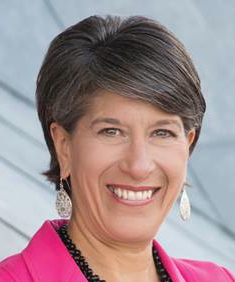In their 33 years of marriage, September and Scott Vaudrey had survived a significant season of marital pain and their son's diagnosis with an incurable disease that ultimately causes blindness. After what felt like a long time, they were finally finding their way.
Their daughter, Katie, returned from her freshman year of college ready to tackle her professor's challenge to not waste her summer. "You have 100 days," the professor had said. "Don't come back the same." Katie was determined to live each day to the fullest.
"Katie loved life and was the kind of person who lit up the room," says September. "On Mother's Day, she wrote me a note saying, 'Your joy is one of the main ingredients to this home's climate. Don't underestimate your contribution."
Two weeks later, the unthinkable happened: Katie suffered a ruptured cerebral aneurysm while driving.
"On May 31, 2008, my life changed forever," September says. "At the hospital, I was completely overwhelmed with grief. I stepped outside the emergency room to call my mom. Standing in the ambulance bay, I felt this overwhelming sense of peace wash over me. It was as if God were saying to me, 'I am good. The circumstance doesn't change my character. It doesn't change who I am. I am good.'"
Six hours later, Katie was pronounced brain-dead. Her family gathered to pray over her and let her go.
"Pain is the great equalizer," September says. "None of us are impervious to pain and loss that takes your breath away. Early on, I was tortured by unanswerable questions. Will I survive? Is my life ruined? Is my joy - the very thing Katie talked about - gone forever? How do you come back from something like this?"
Not long after the funeral, September ranted to God in her backyard.
"This word picture came to me of a path in the woods," she says. "We had come through marital issues and dealing with our son's impending blindness, when out of nowhere, a huge boulder smashes into the path of my life and then continues on its way down the hill. There is now a huge crater in my path, with no way to go around it. I had to figure out how to go through it.
"I could fill the crater with bitterness, anger and resentment. But could I choose to fill it with hope, gratitude, greater empathy or curiosity? With an open-handedness toward God? I knew I'd need to lean into my grief, not skirt it. I faced raw, ruthless days. And I learned that you can't force good things into the broken places, but you can invite them in."
September learned ways to navigate through her own journey of loss. Today, she shares these steps for others in the midst of pain and loss.
Step 1: Name your loss.
What exactly did you lose? September journaled, shared with friends who were willing to just listen and was purposeful about grieving her loss. She created something to remind her of God's faithfulness so far. For her, it was a garden at the accident site.
Step 2: Feel all the feelings.
Be purposeful in your grief. Create stillness and be mindful around your loss. Take walks. Take good care of yourself. Be aware of upcoming milestones that could be hard. And expect moments that will catch you off guard, like the Target dorm room fliers the Vaudreys got in the mail as the school year drew near. ("This time last year, I'd been shopping for dorm supplies with Katie," September says. "Now she was gone. Those flyers sucker-punched me.") Don't try to numb your loss, but lean into it instead. Until you are willing to feel the full impact of your pain, you have no hope of experiencing less pain - or greater joy.
"It's a lie that time heals all wounds," September shares. "You never get over it. You just get on with it."
Step 3: Build your brigade.
Choose the right people to share your journey. Avoid well-intentioned people who deplete you rather than fill you.
Step 4: Spot God's fingerprints.
September has always loved animals. On the anniversary of Katie's death, she noticed a baby raccoon alone on a busy road. After pulling over, she realized the animal was dehydrated and thin - clearly an orphan. She took it home and nursed it back to health.
"I felt like that raccoon bore God's fingerprints on a day he knew I really needed it," September says.
Years after losing Katie, September describes her life as beautiful still. Getting to this place has taken purposeful, deep diving into the crater of her sorrow. Grieving is hard work. But over time, September discovered that greater empathy, richer gratitude, hope and eventually joy, is indeed possible - not in spite of her loss, but because of it.
Julie Baumgardner is president and CEO of family advocacy nonprofit First Things First. Contact her at julieb@firstthings.org.

